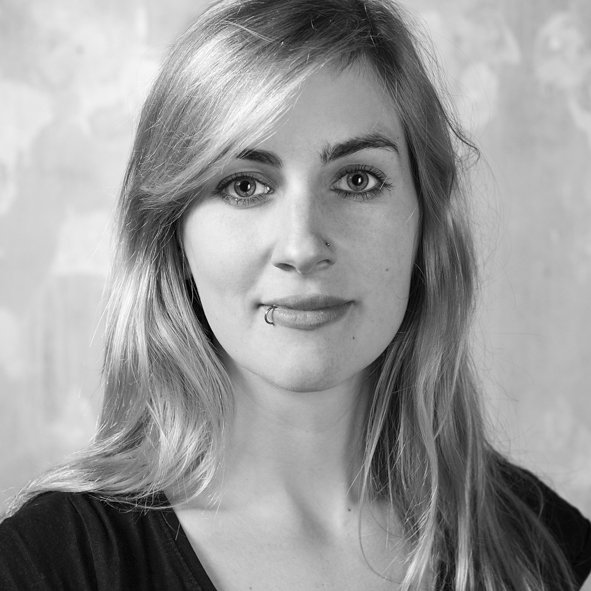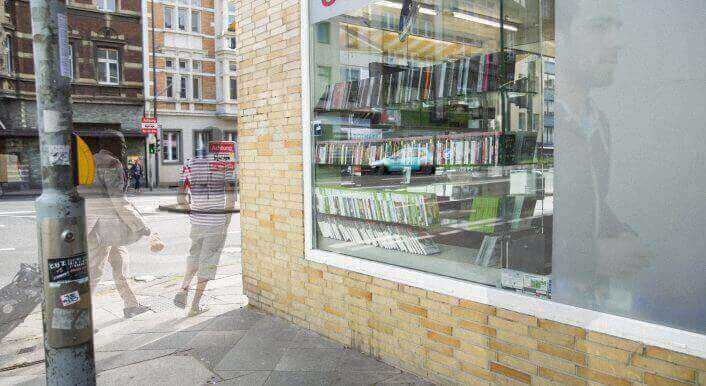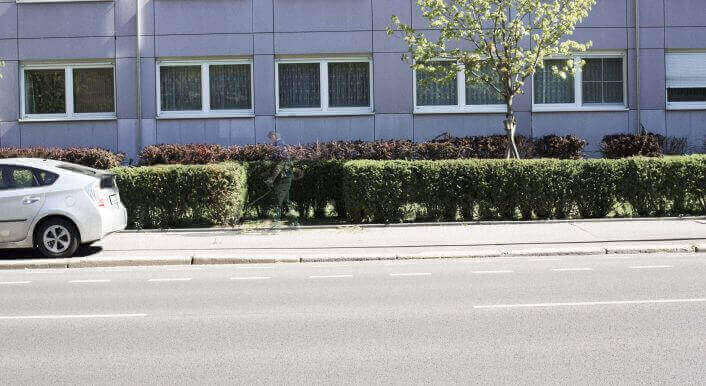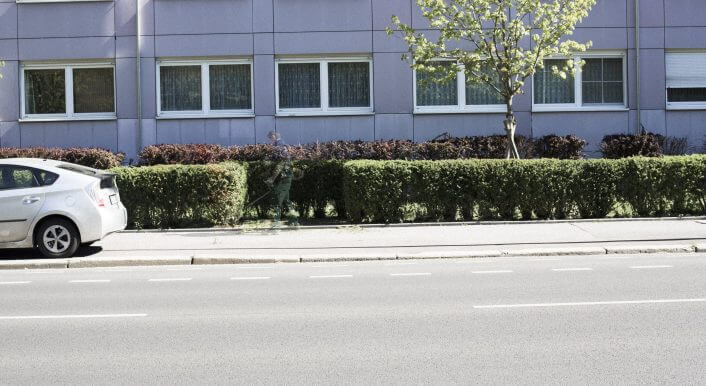Policy to Drive You Crazy
Undocumented people who live in Germany depend on individuals’ good will. On people such as the social worker Golde Ebding who works with the Maltese Migrant Medicine in Berlin. There she supports people who count as illegal. Last year she founded the project “Refugees Welcome” with friends. Via the internet, it houses refugees in shared apartments.

Benedict Wermter spoke with her about the idea and about undocumented life: the endless wait for a better future with no emergency exit.
Ms. Ebding, you are one of the founders of „Refugees Welcome“ and you also support people who live here illegally. How do you explain things to people who live in shared flats and would take in a refugee that the person in question counts as illegal?
Golde Ebding: It’s theoretically a criminal offense, but has not been prosecuted in years. It’s a humanitarian act to help a refugee. The judicial authorities also see it this way – and we explain that to the people.

Golde Ebding
Do you ask the people you organize housing for whether they have permission to be in Germany?
We have to clarify the person’s status to find a suitable source of financing for them. I know that a lot of those who are interested fall into the group of people who do not have a visa anymore, have not received asylum or already entered the country illegally. In Berlin we have a lot of people who aren’t here legally. They are drawn by the protest movements in the big cities and by the large communities with the same background.
In the past weeks and months there has been significant media coverage on „Refugees Welcome“. It seems you are very busy and have hit a nerve. There appears to be a need for you.
The project is booming right now because once again many people have drowned in the Mediterranean. Every time great misery spreads through the media there is a strong reaction from the population. Many citizens want to take a stance and sign up with us. As mentioned, our project is a humanitarian act and not a campaign to make money. There are a lot of families in the rural areas, but also a surprising number of single mothers with a child. In Berlin you can find everything anyway. We had an elderly couple, and shared apartments with gay men and with lesbian women that took in gay and lesbian refugees respectively. There are very specific combinations.
How do you work in the „Refugees Welcome“ team?
My partners do publicity, they take care of the finances and networking. I do the concrete organizational work: first contact must be prepared along with legal issues. I also write and telephone with people who want to take in refugees. Unfortunately a lot of people in shared apartments back down again because they become afraid. They don’t write back anymore or meet a few refugees and then don’t want to participate after all. Often they are also afraid of legal consequences: some people ask themselves whether they will have to go to jail if they take in Invisibles.
What problems do you experience with refugees when you help them?
The impossibility of integration. That also has to do with their accommodation in isolated camps. People who are applying for asylum or who are tolerated are also not entitled to German language courses. Accordingly, they have hardly any contact with Germans and don’t learn the language even though a lot of them have been here for years. Germany doesn’t believe that the refugees will stay here with us, but rather that they will go back. The residency situation is made even more difficult for tolerated people, sometimes their benefits are cut. But in reality we need migration and integration.
We have heard about people who disappear out of ongoing asylum procedures or go into hiding after their application is rejected. Do you know about such cases?
That makes me think of the so-called Dublin cases: refugees who might have Italian papers and are going through an asylum procedure here. They are usually rejected and must be handed over to Italy within six months. If they are supposed to be deported, they go into hiding for the length of time that Germany has to deport them. After that they make a new application which must be processed in Germany, even if only to a limited extent. Refugees fear that they will have even fewer prospects in Italy. In practice, they almost always live on the street there. But the thing that works well in Italy is the free European Health Insurance Card.
And in Germany?
Here the European Health Insurance Card is usually useless. Every acute illness must be examined and treated. But many doctors refuse treatment in their consultation hours. Doctor’s assistants do not even fill out the forms for patients if their residency status is unclear to them. If a German is with them, the refugees are accepted. But not if they go alone. They just can’t defend themselves. A lot of Italians even face this problem in Germany.
That is quite astonishing. The European Health Insurance Card has existed for years. What do people do when they are turned down by the doctor?
Either nothing at all – or they might come to the Maltese Migrant Medicine. We send them with a legal notice back to the doctor for treatment. Nevertheless, refugees are often turned down. The doctors in big cities have enough patients and can allow themselves to choose.
Please tell us something about the lives of the refugees you meet. How do they get along here?
Many have psychological problems. I have contact with people from Sub-Saharan Africa. There, mental problems are not recognized as such. The people often suffer immensely due to their situation, but are not even aware of where this comes from. I often observe physical effects: the refugees can’t sleep, have headaches or are anxious. You can see how European policy drives these people downright crazy. This undignified life breaks people. And on top of that there is the pressure from Africa.
What do you mean when you say „pressure from Africa“?
There are heavenly conceptions of Europe in Africa. That leads to great expectations: the strongest member of the family should support their relatives at home. I know many people who want to go back, but can’t. The people who are sent abroad need to bring something back to their families, otherwise they are seen as failures at home. Unnecessary facades are kept up, great poses of life in Germany are sent over Facebook. The refugees don’t want to stand up and say that they have failed. Nobody would believe them in Africa. That leads to a downward spiral: even more people in Africa want to go to Europe. At the same time, the refugees set up a life in the shadows here.
Can these people become content here?
After going through hell in Southern Europe the migrants lower their expectations, trying to deal with the circumstances. Many people break over the lack of alternatives. Nobody will voluntarily stand in Görlitzer Park in Berlin and sell drugs. I have the feeling that some get used to it. But that depends on the expectations that a person brings with them. Someone who just wants to survive perceives life differently than a person who wants to build a better life. In the end it’s all a question of character as well.
If you could decide: what has to change to improve the lives of migrants in Germany?
I’m not a visionary as far as that goes. The structures and the ways of thinking must first change in politics. That won’t come from the population which is rather drifting off to the right. This sealing off doesn’t work and must be stopped. I believe our project can give the people small, nice moments. But something must happen at the very top.
Translation: Noah Walker-Crawford
Editor: Florian Bickmeyer
Design: Thorsten Franke, Simon Jockers, Ivo Mayr



